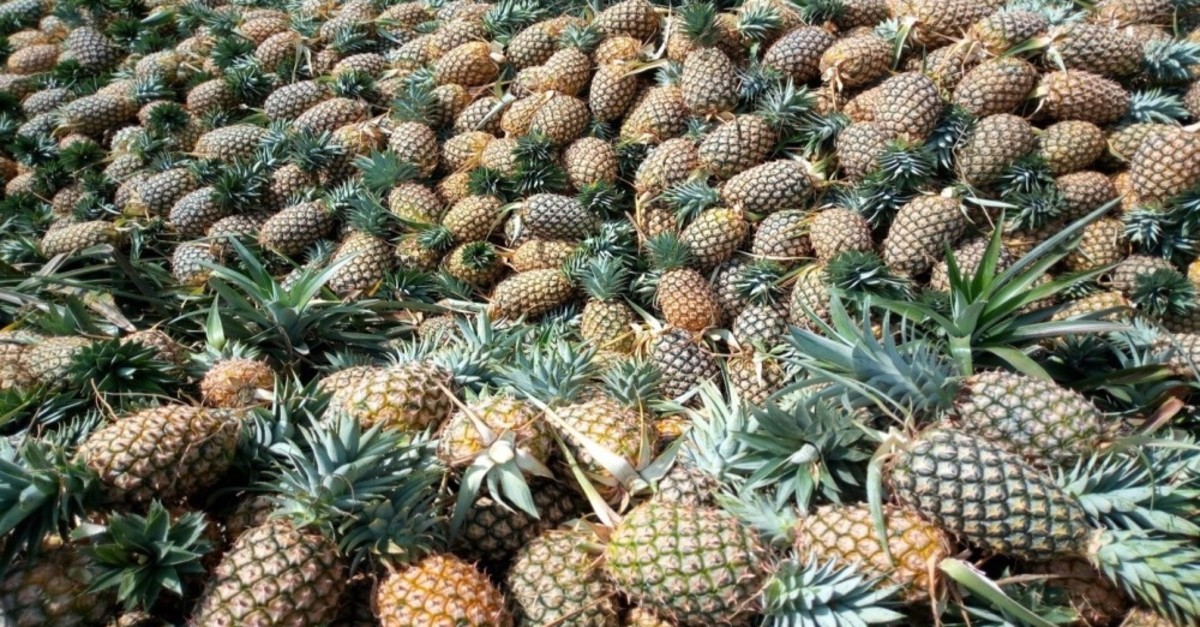YOUR CART
- No products in the cart.
Subtotal:
$0.00
BEST SELLING PRODUCTS

If you have a passion for agriculture and are looking for a lucrative venture, starting a pineapple farm could be an excellent choice.
Pineapples are not only delicious tropical fruits loved by many worldwide but also have a growing demand in the market due to their versatility in various industries such as food processing, juice production, and even as ornamental plants.
Starting a pineapple farm requires careful planning, dedication, and attention to detail. In this article, we will take you through the essential steps to successfully establish and run a pineapple farm.
Before diving into pineapple farming, it is crucial to conduct a thorough feasibility study. This study should assess the suitability of the land you have or plan to acquire for pineapple cultivation.
Pineapples thrive in tropical and subtropical climates, where temperatures remain consistently warm (between 65°F and 95°F or 18°C to 35°C) throughout the year. They also require well-drained soil with good water retention capabilities.
There are various pineapple varieties available, each with its unique characteristics. Some popular ones include Smooth Cayenne, Queen Victoria, and MD2. Research and choose the variety that is best suited for your climate, soil, and market demand.
Once you have chosen the suitable land, it’s time to prepare it for pineapple cultivation. Clear the land of any vegetation and debris, and plow or till the soil to a depth of at least 12 inches. Proper land preparation is essential to ensure that the pineapples can establish strong root systems.
Pineapples can be propagated through both suckers (offshoots) and crowns (the leafy tops). Suckers are small shoots that grow around the base of mature pineapples, while crowns are the leafy tops removed from fully ripened pineapples.
Plant these in the prepared soil, leaving enough space between each plant to allow for proper growth and maintenance.
Pineapples, like any other crop, require proper care and maintenance to thrive. They need regular watering, especially during dry spells, and it’s essential to ensure they receive sufficient nutrients.
Consider conducting soil tests to determine the specific fertilizer requirements for your pineapple plants. Additionally, controlling weeds around the pineapple plants is crucial, as they can compete for nutrients and water.
To protect your pineapple farm from pests and diseases, implement an integrated pest management (IPM) system. This approach combines various preventive measures, biological controls, and judicious use of pesticides to minimize the impact of pests and diseases on the crop while minimizing harm to the environment.
Keep a close eye on the growth and development of your pineapple plants. Regularly inspect them for any signs of nutrient deficiencies, pests, or diseases. Early detection and intervention can prevent potential problems from escalating.
The time it takes for pineapples to reach maturity depends on the variety and growing conditions, but it typically ranges from 12 to 20 months.
Pineapples are ready for harvest when they have developed their full color and the fruits can be easily pulled from the plant. Carefully cut or twist off the ripe pineapples to avoid damaging the plant.
Once harvested, handle the pineapples with care to prevent bruising and damage. Proper post-harvest handling ensures that the fruits reach the market in optimal condition, enhancing their shelf life and market value.
Develop a marketing strategy to sell your pineapples to wholesalers, retailers, or directly to consumers. Establish connections with local markets, supermarkets, and food processors. Additionally, explore exporting opportunities if applicable and feasible.
Starting a pineapple farm requires dedication, patience, and a willingness to learn and adapt. With proper planning and diligent execution, your pineapple farm can grow into a successful and rewarding agricultural enterprise.